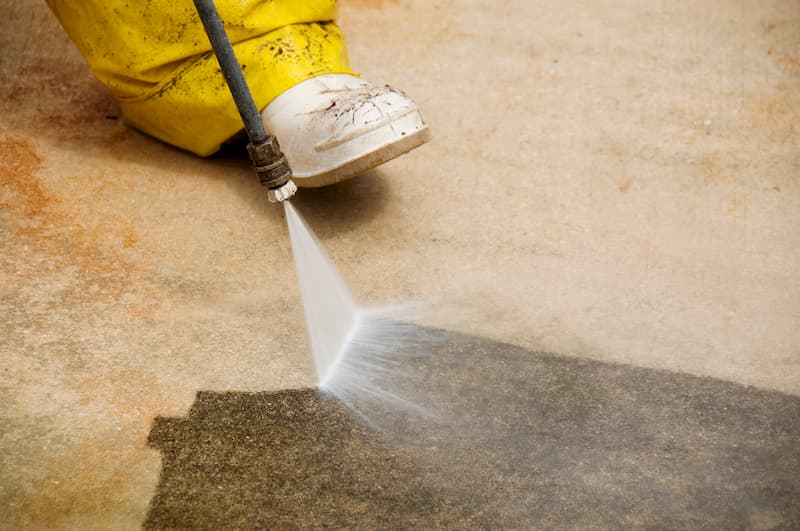Concrete Cleaning Cautions

Concrete surfaces, whether driveways, patios, or sidewalks, can accumulate dirt, grime, and stains over time, diminishing their appearance and potentially leading to decay and damage. While cleaning concrete can restore its original look and extend its lifespan, it's essential to approach the task with care. Improper cleaning techniques and methods can cause more harm than good. Here's what you need to know about the cautions of concrete cleaning.
Common Mistakes in Concrete Cleaning
- Using the Wrong Cleaning Agents: Using harsh chemicals or the wrong type of cleaner can damage the concrete surface. Acid-based cleaners, for example, can eat away at the concrete, leaving it pitted and weakened.
- High-Pressure Washing Risks: While power washing can be effective, using too high a pressure can etch the concrete surface, creating lines and grooves that not only look unattractive but can also trap dirt and water, leading to further damage.
- Ignoring Proper Preparation: Failing to properly prepare the concrete surface before cleaning can result in uneven cleaning and damage. Loose debris, oil spots, and other contaminants should be removed beforehand to ensure a thorough and safe cleaning process.
- Inadequate Safety Precautions: Concrete cleaning involves potentially hazardous chemicals and high-pressure power washing equipment. Without proper safety gear and precautions, there is a risk of injury, including chemical burns, eye injuries, and slips and falls.
Cautions to Consider
If you're determined to DIY, there are a few things you should consider before attempting concrete cleaning:
- Chemical Selection: Choose the right cleaning agents designed specifically for concrete. Avoid acidic or overly harsh chemicals that can degrade the surface.
- Pressure Washer Settings: Use a pressure washer with an appropriate PSI (pounds per square inch) for concrete. Generally, a setting between 2,000 and 3,000 PSI is recommended, but always test a small area first.
- Protect Surroundings: Protect surrounding areas, including plants and structures, from chemical overspray and high-pressure water.
- Test Patches: Before applying any cleaning method across the entire surface, test a small, inconspicuous area to ensure it won't damage the concrete.
- Safety Gear: Always wear protective clothing, gloves, goggles, and non-slip footwear when handling chemicals and pressure washers.
- Proper Technique: Maintain a consistent distance and sweeping motion when using a pressure washer to avoid creating etch marks or streaks.
Concrete cleaning, while seemingly straightforward, requires careful consideration and proper power washing and soft washing techniques to avoid damaging the surface. By being aware of the potential pitfalls and taking appropriate precautions, you can achieve a clean, attractive, and durable concrete surface. When in doubt, consider hiring a professional concrete cleaning service like Bailey's Final Clean/Pressure Washing that has the soft washing expertise and commercial-grade power washing equipment to handle the job safely and effectively. By doing so, you can ensure your concrete surfaces remain in excellent condition, enhancing the overall appearance and value of your property.
Say Hello To Shine With Our Concord Power Washing Experts!